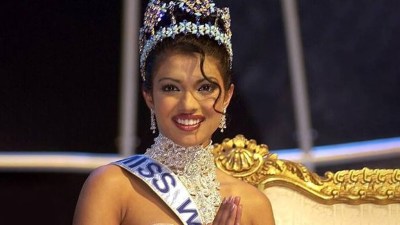The empress and the scribe
Early in July 1975, soon after the imposition of the Emergency, we in the National Union of Journalists NUJ, got a call from the Prime M...

Early in July 1975, soon after the imposition of the Emergency, we in the National Union of Journalists NUJ, got a call from the Prime Minister8217;s office. Her Press advisor, Sharada Prasad, wanted us to meet the Prime Minister. The union had come into existence in 1972 and even at that stage we had somehow perceived that dark clouds were looming on the horizon.
Given the fact that dissent was now being stifled in the name of One Nation, One Party, One Leader8217;, the call from the PMO was therefore a little odd. All these years, we had been kept out of all official consultations. We decided to respond to it, however, and a five-member delegation, led by our then vice-president Prithvis Chakaravarti at that time special correspondent of The Hindustan Times met her on July 5.
At the outset we told her that we were opposed to Press censorship and the curbs on freedom that she had imposed. Our written memorandum demanded the immediate restoration of freedom of expression. Mrs Gandhi, in an imperious mood, explained why she was compelled to resort to this strong measure. She asked whether the Press ever opposed some of the traitorous statements of Janata leaders like the one JP made, asking the Army not to obey the orders of the higher authorities.
The delegation did not leave this statement unchallenged. It pointed out that The Indian Express, so closely identified with the JP movement, had, in an editorial, cautioned JP against that statement as it could be misconceived. She replied that she had never come across such an edit. We were not able to give her an immediate reference to that editorial, but we insisted that it had indeed appeared and that, if necessary, we could search it out for her. She only made a note of this.
The Prime Minister kept up her imperious stance and came down heavily on the politics of confrontation that people like JP was espousing. She argued that censorship was needed to prevent the disintegration of the country. We countered this claim. Finally, the delegation leader, Prithvis Chakaravarti, flatly told her: 8220;Madam Prime Minister, those who are propagating the idea that you are above the Constitution and the Law are doing you a great disservice. The consequences could be disastrous.8221;
Mrs Gandhi went red in her face. For the first time in the ten days8217; since the Emergency was imposed, no one had dared to say this to her face. She stood up at once to indicate that the meeting was over and, sensing the tense atmosphere, Sharada Prasad led us out of her room. We thought he would march us all straight to Tihar Jail. He did not.
But we kept the opposition to censorship alive. When the Prevention of Objectionable Publications Act was first promulgated as an ordinance, the Iamp;B Ministry factotums sought our signature to a statement welcoming that piece of legislation. We refused. Every effort was made to get us to sign on the dotted line. We did not oblige. We were kept out of all official bodies as a result. Some of our important members were already in jail. We must also record that, despite Mrs Gandhi8217;s resentment towards our organisation, there were many leaders in her party who were sympathetic to us. Some of them, like P.C. Sethi, then MP chief minister, had the courage to come to our meeting held in Bhopal during the Emergency, where we roundly condemned censorship.
We never bent before authority, then or later, even when the then virtual leader, Sanjay Gandhi, sent us a feeler through a journalist friend that he would reverse governmental opposition to us and give us all support if at our proposed conference in Madras he was invited to address us. We refused the offer outright, although we were not unaware of what the consequences of such a refusal could be. Fortunately for us, by the time we were to board the train to Madras for the conference, the elections had already been announced. The rest, of course, is history.
The writer is a founder-member of NUJ
- 01
- 02
- 03
- 04
- 05






























